As a child my favorite stories were by Laura Ingalls Wilder. As I escaped from my world into Laura’s world I began to long to be a pioneer. To head out into the wild unknown. To see places I’ve never seen. Meet people I’ve never met. Experience things I’ve never experienced. I will confess , leaving the security of a brick and mortar house to live in an RV was nerve-wracking. Yet I wouldn’t trade anything for the time we spent away from our jobs, families, and community, traveling and living in an RV.
So how did we accomplish this? I’d like to share how we lived in an RV and survived!
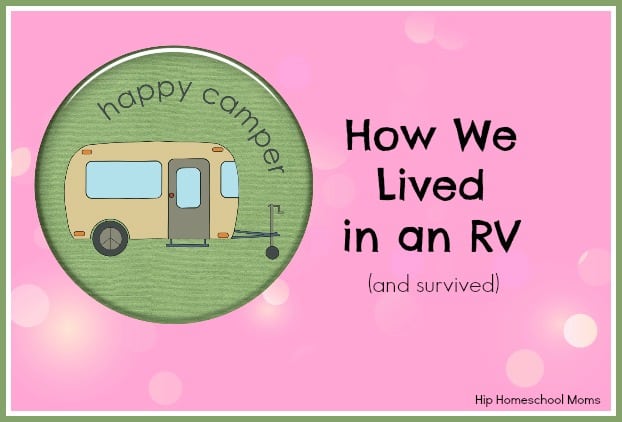
How did you live (or survive) in such a small space with one another?
As I mentioned in my previous post, this lifestyle created bonding. If we didn’t work on the relationships between us, we wouldn’t have been able to survive. Logistically, how did we live in a small space? By limiting STUFF.
How did you organize all the stuff?
Our fifth wheel RV trailer has an upper front bedroom, bathroom, and a back bunkhouse. The main living area in the middle contains a table, a couch, the kitchen, and media area. There’s lots of space. Stuff was not an issue; weight was the issue.
When you don’t have a lot of stuff, it’s easier to organize the stuff.
I used lots of storage bins and plastic bags everywhere. I limited our dishes, pans, and small appliances to a bare minimum. School materials were limited to four plastic file bins. Tools and essentials lived underneath. We decided against taking bikes, the raft, and art supplies we took on previous journeys. The rule became, “If an item wastes space, it leaves the RV.”
I shared some organization modifications we made to our RV on my blog last year.
How many outfits did you have?
Clothing can be a hog when it comes to weight allowance. I had to limit the amount of clothes we packed. As a rule-of-thumb, we had 7 main outfits, plus underclothing, pajamas, swim suits and jackets. We each had a pair of hiking boots, a pair of tennis shoes, a pair of sandals and a pair of flip-flops (for the showers). We opted for clothing that was dual-purposed and easy to wash. We survived fine without a walk-in-closet worth of clothes.
How did you do laundry?
We purchased two collapsible laundry baskets, one for each bedroom. A smaller basket held laundry soap, bleach, bleach pen, fabric softener and a roll of quarters. One thing I DO miss about laundry on the road: A week’s worth of laundry can be done in about 2 hours!
How did you manage feeding your family on the road?
Our RV has a tiny microwave, propane stove and oven, sink, and refrigerator. There is a large row of cabinets and pantry. The food was packed in the refrigerator and pantry as efficiently as possible. Everything was consolidated into bags. We used our outside barbecue for most meals. We ate a lot of salads, fruits, vegetables, and snacks like nuts, popcorn, and chips and salsa. We tried to limit our consumption of high sugar foods. We obtained a filter to cut down on the amount we spent on bottled water. Because of the limited amount of space and weight limitations, we shopped for groceries about every 3-4 days.
What about showering, bathing, staying clean?
Although our RV has a nice shower, we chose to use the camp showers. We purchased shower bags to hold our personal hygiene items. Before bedtime the girls and I would head to the shower. Dad and the boy went in the morning. To solve the issue of having wet towels in the RV, we purchased Microfiber Bath Towels from Amazon for each person. We also shared 2 hand towels and 4 wash clothes. Our toiletries and hair supplies were stored in a shoe organizer that hung on the back of the bathroom door.
Keeping the inside clean took me less than 30 minutes a day! Dishes were washed and put away right after they were used. Before we moved to a new spot. the inside was dusted, swept, mopped and all surfaces wiped down. We did a deep clean about every other week.
How did you homeschool?
I made the mistake of trying to bring along 4 months worth of schoolwork. After a week, I left half of it with my family in Nevada. We started with structured learning and after a few weeks we began unschooling. Before we’d visit a place, I’d look up any interesting facts that I wanted the kids to know. We prodded them to ask questions of rangers, museum presenters, and tour guides. We read the informational signs as much as we could. When the kids asked a question, we used Google. We read biographies and historical stories on our kindles and iPad. I finally just decided that math, grammar, writing, biology, and history could wait. This was the opportunity of the lifetime for my kids, and I wanted them to savor every moment. If we continued living full-time on the road, we’d probably have settled on using a DVD all-in-one curriculum simply to save weight.
How did it affect your marriage?
This question is usually cryptic. I’ll just say this — we became creative. I felt like I was on a three-month-long date last year. If we needed to talk, we’d stay up late. We’d go outside. We were even known to text each other sitting across the table. We found find ways to be a couple.
How did your family afford it? What does your husband do?
My husband’s job is not mobile, so we lived on savings until they ran out. On average, we spent about 4,000 a month. If we had invested in becoming a completely mobile family it may have been cheaper. Obvious expenses we had planned like fuel and camping fees were higher than we expected. We found it more difficult to keep a food budget under control when we had to shop at the nearest place available that would take a big RV. All the ways I could be frugal at home no longer worked on the road.
There are ways to make the lifestyle affordable; I recommend visiting Fulltime Families for more information.
What are we doing now?
We are stationary now. The road still calls to us, and we may return one day. For now, we have embraced this season of our life, walking with our children as they bridge from childhood to adulthood. I’m thankful that our family was given the opportunity, even for a short period of time.
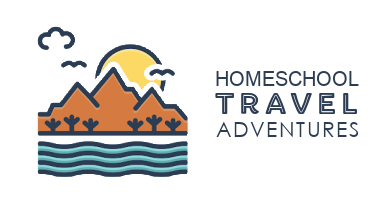
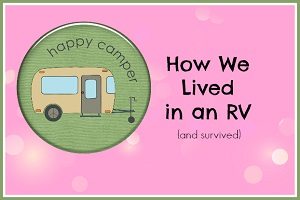
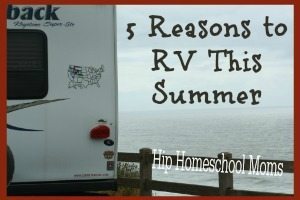
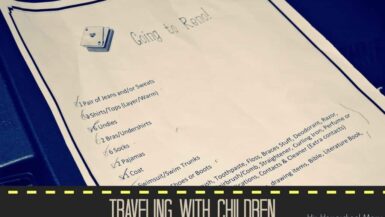
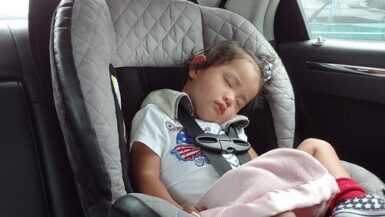
What an adventure. We love RV living. Since we are military we have spend much time on the road between moves and while waiting for housing. Always an adventure and a great learning and bonding opportunity. I think I could do full time for a while if it were not for the weather. I DID NOT enjoy storms in the 5th wheel or the motorhome!
My husband always wanted to do this – I however, am so not that adventurous. I love my creature comforts. Not only that, I’m not that great with budgeting. However, we do long vacations and these ideas work.